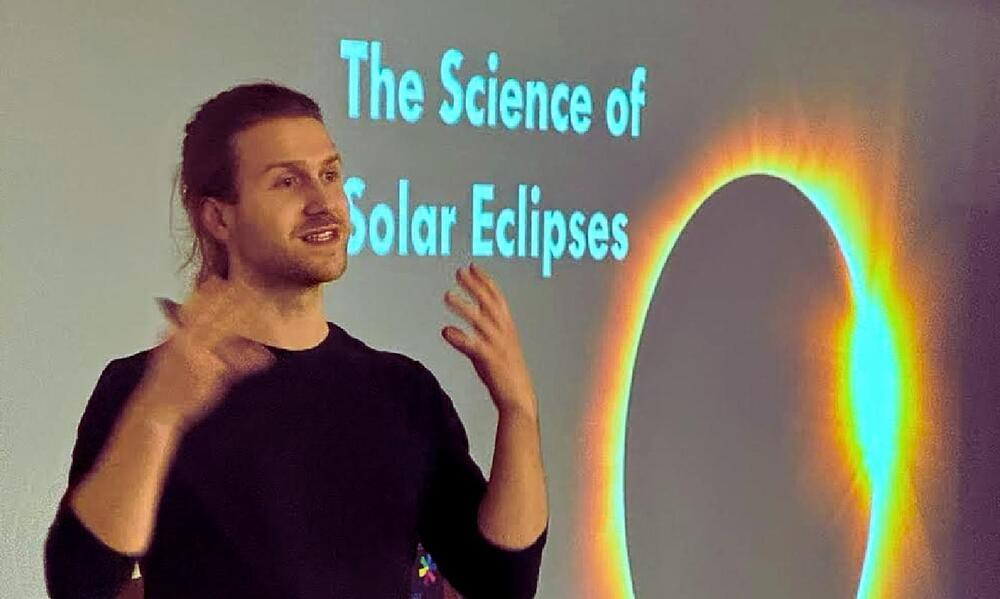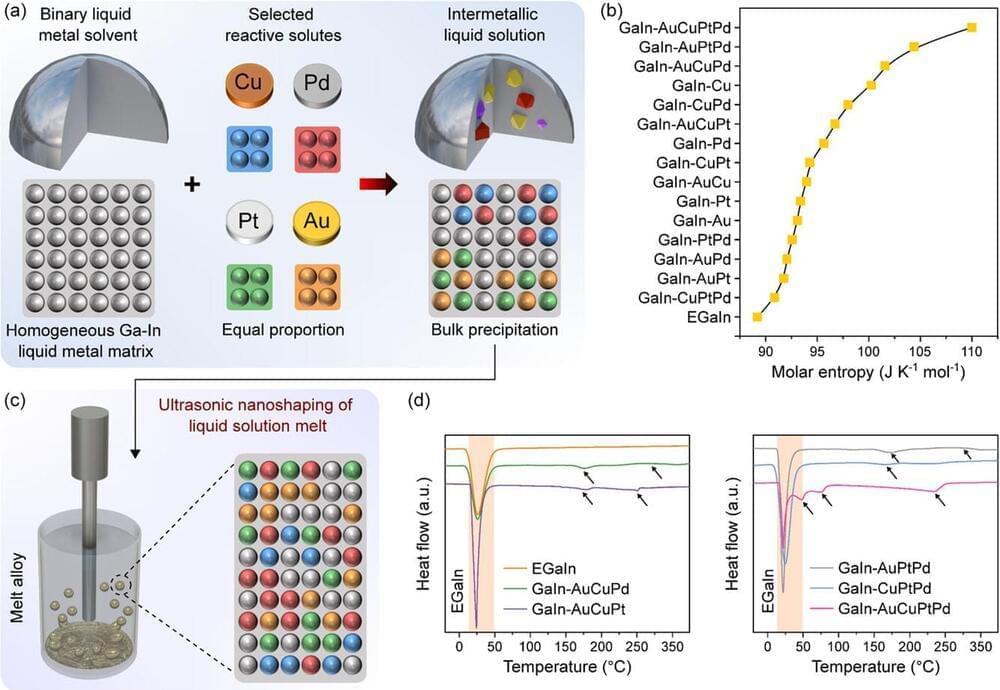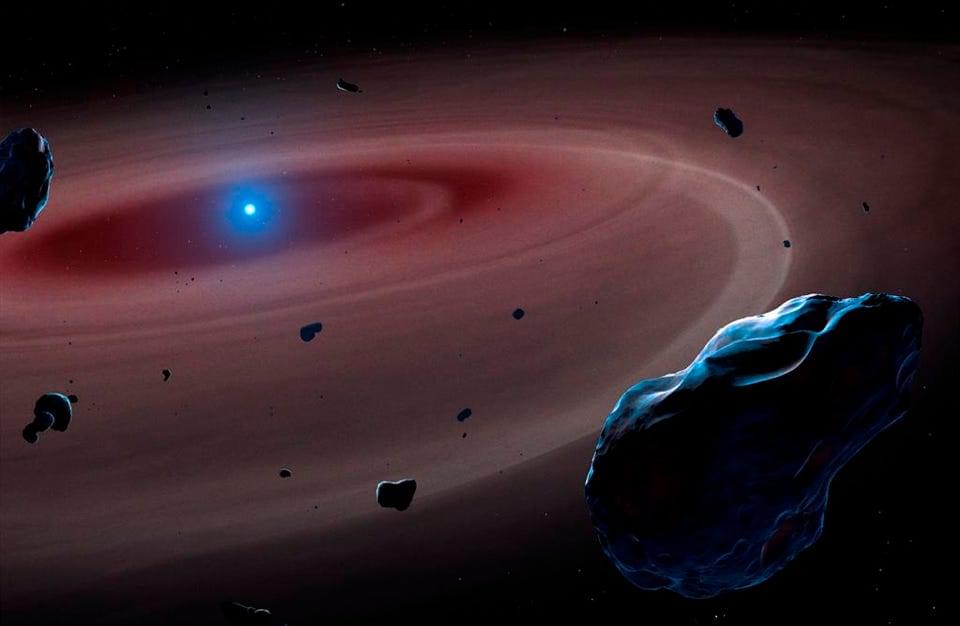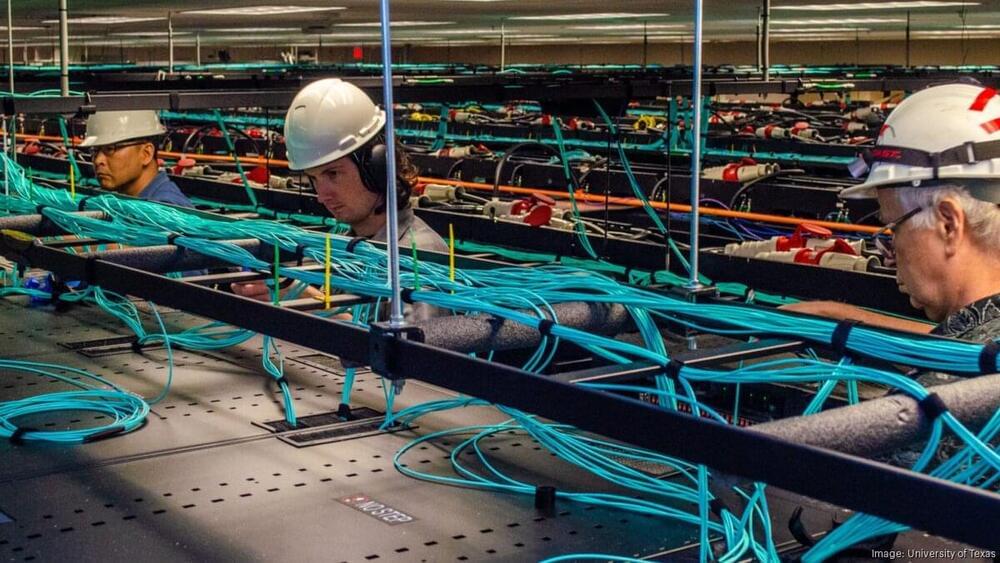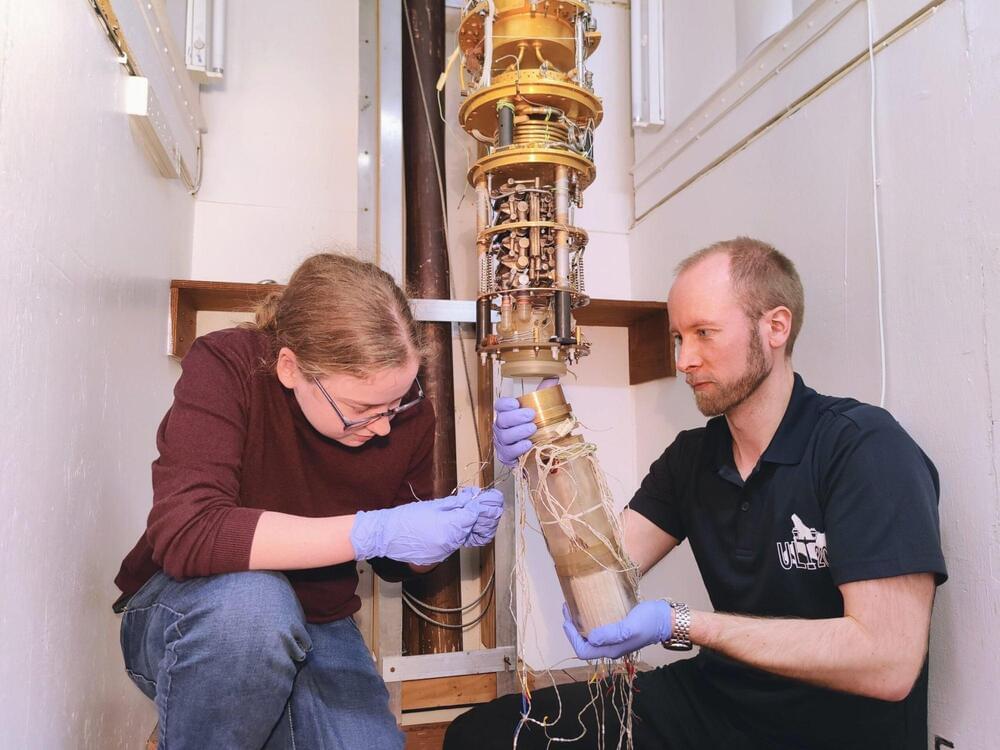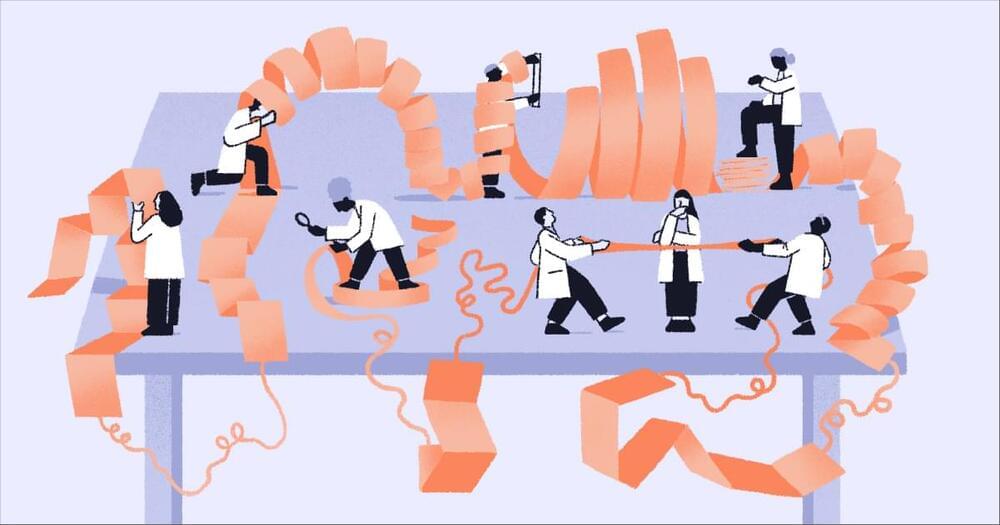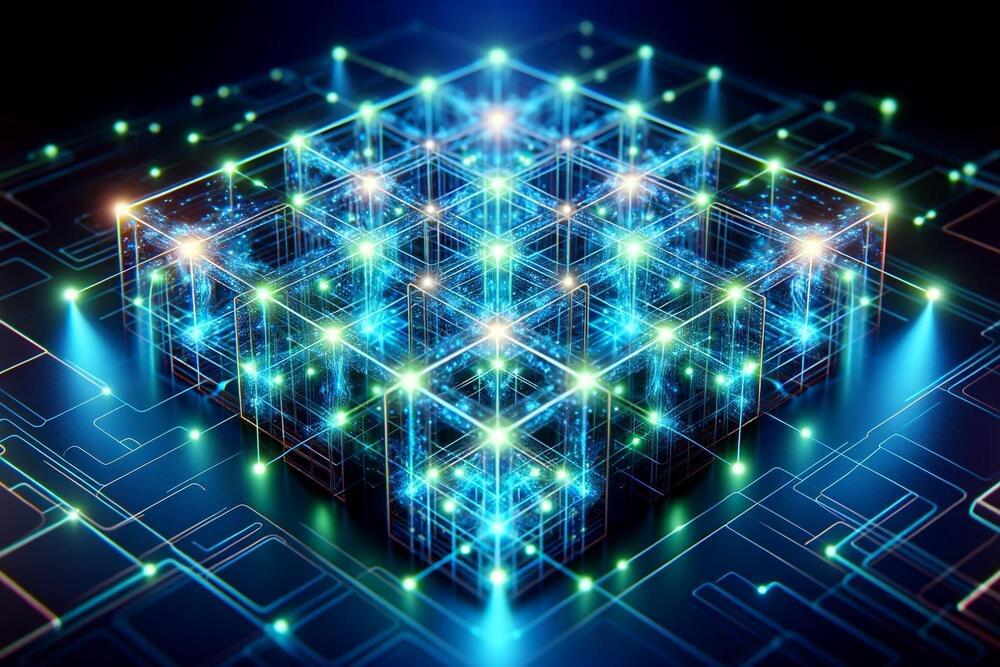As public trust in science continues to wane, it is essential for scientists to demonstrate what science is — and what it is not — to everyone.
Archive for the ‘science’ category: Page 7
Jul 23, 2024
Nanoscale high-entropy liquid metal alloys promise advancements in catalysis and materials science
Posted by Dan Breeden in categories: evolution, nanotechnology, science
Researchers synthesize high-entropy liquid metal alloys at nanoscale, achieving atomic dispersion of noble metals and demonstrating enhanced catalytic activity for hydrogen evolution.
Jul 20, 2024
Quantitative Justice: Using Data Science for Good
Posted by Saúl Morales Rodriguéz in categories: biotech/medical, mathematics, neuroscience, science
For the past several years, I have been closely involved with the Institute for the Quantitative Study of Inclusion, Diversity and Equity (QSIDE). This nonprofit organizes events and facilitates research in quantitative justice, the application of data and mathematical sciences to quantify, analyze and address social injustice. It uses the community-based participatory action research model to connect like-minded scholars, community partners, and activists together. Recently, QSIDE researchers met virtually in a Research Roundup to share our progress. Hearing all the incredible work that QSIDE has spawned and supported prompted me to reflect on the role that the group has played in my budding career and the ways in which the institute itself has grown since its founding in 2019.
Like many PhD candidates, my final year of graduate school was rife with burnout and uncertainty about post-graduation plans. Add to this mix a global pandemic, social isolation, and confinement to the same one-bedroom dwelling for the last year plus and you get a stew of anxiety. I was approaching my mental limit on the research I had been conducting, somewhere at the intersection of data science and fluid dynamics. While the problem I had been working on for my thesis was interesting, I was ready for a major change. I couldn’t picture myself in the usual post-graduate tracks: a post-doc at an R1 institution or working for a Big Tech company. These careers felt hyper-competitive, a turn-off during a period of significant burnout. I also couldn’t see their direct positive impact, which felt acutely important in this time of global social disarray.
Jul 19, 2024
The science of how Earth will meet its ultimate end
Posted by Shubham Ghosh Roy in category: science
The last ~4 billion years have been an incredibly successful, unbroken run for life on Earth. The ultimate end won’t be nearly so bright.
Jul 18, 2024
Elastic Horizons: The Science Behind 5000% Stretchable Lithium-Ion Batteries
Posted by Saúl Morales Rodriguéz in categories: energy, health, science, wearables
A newly developed stretchable lithium-ion battery retains efficient charge storage after 70 cycles and expands up to 5000%. This innovation caters to the growing demand for batteries in wearable electronics, ensuring flexibility and durability.
When you think of a battery, you probably don’t think of something stretchy. However, batteries will need this shape-shifting quality to be incorporated into flexible electronics, which are gaining traction for wearable health monitors. Now, researchers in ACS Energy Letters report a lithium-ion battery with entirely stretchable components, including an electrolyte layer that can expand by 5000%, and it retains its charge storage capacity after nearly 70 charge/discharge cycles.
Advancements in Flexible Electronics.
Jul 16, 2024
Why Humanity Needs Science, not Religion | Carl Sagan
Posted by Dan Breeden in categories: cosmology, science

Discover Sagan’s unique blend of scientific curiosity and philosophical introspection, as he seamlessly navigates the realms of cosmology and the human condition.
If you would like to support my work financially, you can donate here:
/ twt_pc.
All contributions are greatly appreciated!
Continue reading “Why Humanity Needs Science, not Religion | Carl Sagan” »
Jul 11, 2024
$457M from National Science Foundation to help establish new computing center at UT focused on AI
Posted by Genevieve Klien in categories: robotics/AI, science, supercomputing
Jul 9, 2024
One of the greatest mysteries of science could be one step closer to being solved
Posted by Genevieve Klien in categories: cosmology, particle physics, quantum physics, science
Around 80% of the universe’s matter is dark, meaning it is invisible. Despite being imperceptible, dark matter constantly streams through us at a rate of trillions of particles per second. We know it exists due to its gravitational effects, yet direct detection has remained elusive.
Researchers from Lancaster University, the University of Oxford, and Royal Holloway, University of London, are leveraging cutting-edge quantum technologies to build the most sensitive dark matter detectors to date. Their project, titled “A Quantum View of the Invisible Universe,” is featured at the Royal Society’s Summer Science Exhibition. Related research is also published in the Journal of Low Temperature Physics
The team includes Dr. Michael Thompson, Professor Edward Laird, Dr. Dmitry Zmeev, and Dr. Samuli Autti from Lancaster, Professor Jocelyn Monroe from Oxford, and Professor Andrew Casey from RHUL.
Jul 9, 2024
How AI Revolutionized Protein Science, but Didn’t End It
Posted by Shubham Ghosh Roy in categories: robotics/AI, science
Three years ago, Google’s AlphaFold pulled off the biggest artificial intelligence breakthrough in science to date, accelerating molecular research and kindling deep questions about why we do science.
Jul 6, 2024
Sound Science: How Phononic Crystals are Shaping Quantum Computing
Posted by Saúl Morales Rodriguéz in categories: computing, genetics, information science, mobile phones, nanotechnology, quantum physics, science
Researchers have developed a genetic algorithm for designing phononic crystal nanostructures, significantly advancing quantum computing and communications.
The new method, validated through experiments, allows precise control of acoustic wave propagation, promising improvements in devices like smartphones and quantum computers.
Quantum Computing Revolution
